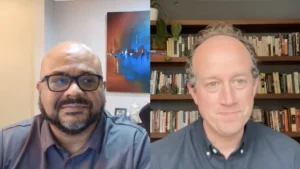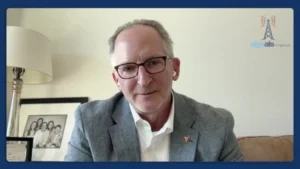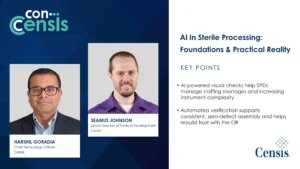Making Bright Ideas Work: Leveraging Local Resources with Powerful Global Networks
Two Sunrise Labs heavy hitters, Chuck Smith, Principal Mechanical Engineer, and Doug Browne, Director of Mechanical Engineering and Design Transfer, joined host Tyler Kern for an in-depth discussion on leveraging local expertise for medical device development.
Both the term medical devices and the expertise needed to create such equipment are broad in their scope. Still, at Sunrise Labs, it is not uncommon to receive requests for all different types of medical devices. Rising to meet the challenge can require a broad array of local expertise to get the job done.
“One thing at Sunrise, all of our full product development entails electrical integration, circuit boards, software, mechanical,” Browne said. “We’re not just designing high-volume widgets; we’re designing complex systems. And we know it’s a global economy; it’s a global world. To meet customers’ cost targets, you’re going to need to reach out to a wide spectrum of manufacturing bases, as well as an engineering design base.”
Utilizing local connections with global connections allows Sunrise Labs to leverage these capabilities to their fullest extent.
Smith noted Sunrise Labs’ Southern New Hampshire headquarters as a benefit for taking advantage of all the various New England technology-based companies that can support their efforts in building new product prototypes. “I’ve had parts picked up from a machine shop in the morning, dropped off at a brazing house in the afternoon, then had them picked up the next day and installed on a prototype before lunch, all from within a very short distance.”
And while the ability to reach out to a local network to create something nearby is desirable, there are times when these local networks have helped Smith with projects where some needed parts were just not available in the U.S. “I worked with a stateside molder who partnered with a machine shop in Korea. The molds themselves were made in Korea, then shipped back here. I stood by the injection molding machine while the parts were being run, and the process was being tuned doing fit checks every couple hours until we got a result that would exceed,” Smith said. “Once everything was fine-tuned, these molds went back to Korea where they could then mass-produce the parts at a much more economical scale.”
Follow us on social media for the latest updates in B2B!
Twitter – @MarketScale
Facebook – facebook.com/marketscale
LinkedIn – linkedin.com/company/marketscale









